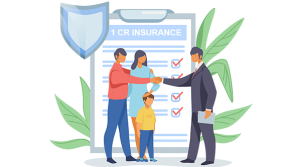Minor car accidents are a frequent occurrence on our roads. A report states that rear-end collisions, a classic example of a minor accident, make up nearly half of all reported crashes nationwide. These typically involve fender benders, minor dents, or scratches.
However, even a seemingly minor bump can have hidden consequences.
Injuries like whiplash or soft tissue damage may not show up immediately, and the adrenaline from the accident can mask these issues. That's why it's crucial to file a police report and get the compensation you deserve, even after a minor accident.
We'll explore the different approaches you can take in the sections below.
Going Solo: Handling a Minor Accident Yourself
Let's say the damage seems truly minor, and everyone involved is okay. In this case, handling the accident yourself can be a viable option. It can be a more cost-effective route, saving you lawyer fees. Plus, if the claims process with your insurance company goes smoothly, you might see a quicker resolution.
But before you go this route, here are some key steps to follow:
- File a police report: Even for minor accidents, a police report creates an official record of the event. This can be crucial if there are any discrepancies later on.
- Gather evidence: Take photos of the damage to both vehicles, the surrounding scene, and any injuries you may have. Note the date, time, weather conditions, and details about the other driver and their insurance. Witness statements, if available, can also be helpful.
- Contact your insurance company: Contact your insurance provider as soon as possible. They'll guide you through the claims process and help you file a claim against the other driver's insurance if necessary.
However, it's important to remember this: understanding your state's laws and your own insurance policy is critical. Knowing your rights and coverage can make a big difference in navigating the claims process smoothly.
The Risks of Going Solo: When Handling a Minor Accident Gets Tricky
While handling a minor accident yourself can be tempting, there are some potential pitfalls to consider. Here's what you might face:
- Underestimating Damages: Sometimes, the true extent of the damage isn't immediately apparent. There could be underlying issues with your car that a mechanic uncovers later. Without professional guidance, you might miss out on claiming full compensation for repairs.
- Missing Deadlines: Insurance companies often have strict deadlines for filing claims. Missing these deadlines could result in your claim being denied.
- Negotiating with Insurance Adjusters: Insurance companies employ adjusters trained to negotiate settlements. They might offer you a lowball amount that doesn't cover all your expenses. Representing yourself in this situation can be challenging.
Insurance companies themselves have tactics to keep an eye out for. They might:
- Offer a lowball settlement: This initial offer is often much lower than what you're entitled to. They might deny your claim based on technicalities. They might try to find loopholes in your policy or the accident details to avoid paying out.
The key to a successful claim, regardless of who represents you, is clear and documented evidence. The more information you have about the accident, the stronger your case will be.
When to Call in the Cavalry: Hiring a Lawyer for a Minor Accident
So, when does handling a minor accident yourself become a bit too much to handle? Here are some situations where legal representation is highly advisable:
- Injuries Requiring Medical Attention: Even if you feel okay right after the accident, injuries can manifest later. If you require medical attention, a lawyer can ensure your medical bills are covered and fight for compensation for pain and suffering.
- Significant Property Damage: If the damage to your car is extensive, a lawyer can help you navigate the repair process and ensure you receive fair compensation.
- Fault is Disputed: Sometimes, determining who caused the accident can be a complex issue. If the other party disputes fault, a lawyer can investigate the accident, gather evidence, and fight for your rights.
Things can get even trickier when there are:
- Multiple Parties Involved: Accidents with multiple vehicles or pedestrians can be messy. A lawyer can untangle the legalities and ensure your claim is handled fairly.
- Uninsured Drivers: If the driver who caused the accident doesn't have insurance, a lawyer can explore alternative options to recover your losses.
Even beyond the legalities, there's the value of peace of mind. Dealing with insurance companies and the aftermath of an accident can be stressful. A lawyer can handle the heavy lifting, allowing you to focus on your recovery or return to your routine.
The Benefits of Having an Expert on Your Side: Hiring a Lawyer
Let's face it: Navigating the legal world after an accident can be daunting. This is where a lawyer's expertise comes in. They bring a wealth of experience to the table, helping you navigate the legal process and potentially maximize the compensation you receive.
Here's how a lawyer can help:
- Gather Evidence: They know what evidence is crucial to building a strong case. They'll collect police reports, witness statements, medical records, and other relevant documentation.
- Interview Witnesses: Lawyers are skilled at interviewing witnesses and getting clear statements that support your claim.
- Handle Communication with Insurance Companies: Dealing with insurance adjusters can be frustrating. A lawyer can handle all communication, ensuring your rights are protected and you're not pressured into accepting a lowball offer.
Negotiating a fair settlement is another key area where a lawyer shines. They can:
- Negotiate a fair settlement: Lawyers understand the value of your claim and will fight to get you the compensation you deserve.
- Take the case to court (if necessary): If a fair settlement can't be reached, a lawyer can represent you in court.
Weighing the Costs and Benefits: Making an Informed Decision
While hiring a lawyer involves costs, a successful outcome can lead to significantly higher compensation than handling the claim yourself. Consider this a potential investment in maximizing your recovery.






